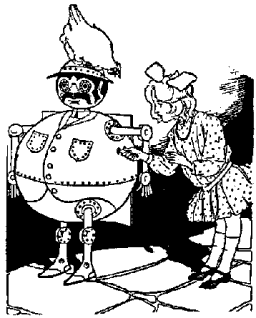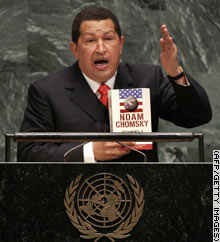
Is there free will? A vexing question. I've given it a lot of thought for some time now, and I'm still very, very vexed.
Part of the inquiry needed to examine this subject involves figuring out what free will is in the first place. The distinction between a free act and an autonomic response to stimuli is that of the motive for the action.

If I reach into a fire, my hand and arm jerk back as a reflex caused by the pain. I am not moving my hand back of my own volition – it is an automatic reaction. It takes a significant act of willpower for me to hold my hand in the fire despite the pain. Holding my hand in the fire despite the pain would be an act of free will, perhaps not the most positive way I could exercise my free will, but still a demonstration of my mind’s power to override an autonomic response.

It is when one matures and acquires a sense of one’s own identity and place within a larger world that the distinction between an autonomic response and an act of free will becomes very problematic very quickly. For instance, I decided to go to college as a teenager. Why? Was it my own free decision? Was it the result of a conscious set of calculations about whether it would be to my advantage to do so? Or was I reacting to the stimuli of my environment in which most of my peers were planning on college, most of the authority figures in my life were guiding me to that path, and most of the models of success that I admired had college in their background? Was it a decision made to please my parents and friends, who very much wanted me to go, and if it was, was that decision a reaction to the pressure of my parents and peers or were those pressures merely part of the economic calculus of the decision? Why did some other teenagers with whom I associated choose to not go to college? Were their sets of stimuli that different than mine? Did they not think they would enjoy it? Or did they simply exercise their free will in a different manner than I? It is very difficult, at least from a psychological level, to really grasp everything that was going on.

Consider a baby. The stimulus-and-reaction set of babies is quite limited. Babies are reactive to the world. Their ability to experience the world is limited compared to that of an adult. A newborn’s sense of sight is limited to seeing colors and brightness, because the brain has not yet learned how to process binocular vision into shapes and recognition of figures. The baby’s other senses are similarly-limited. Through a combination of the accumulation of experience and physiological development, the baby’s senses – and ability to make us of the sense data generated through those senses – develop and the baby’s abilities to perceive the world improve.
A baby reacts to stimuli. The stimuli may be internal and not obvious to its parents – hunger, for instance, or temperature – but all it does is react to stimuli. The baby does not act of its own volition at all; it responds, in a more or less universal fashion, to what happens around it and to it.
Culture, race, sex, and a variety of other things that seem important to adults has nothing whatsoever to do with the way a baby relates to the world. A baby in the U.S. has the same reaction to hunger or a dirty diaper as a baby in a rural, underdeveloped country of Africa. The baby cries (or not) in reaction to the stimulus. At

a very young age, the baby lacks the strength and dexterity to even manipulate or attempt to manipulate things in its environment – it lacks the power of speech, the ability to hold a bottle, or even to control its own bowels. It doesn’t matter where the baby is from, who the baby’s parents are, or even if the baby is sick or healthy – the baby is a helpless, reactive being.
So babies do not have free will at all. They are purely reactive; they cannot make independent decisions and they do not act in ways that differentiate one from another in any significant way.

That is, of course, referring to very young babies; newborns and infants. As the infant matures, the senses come in to focus and there is physiological development. The more a baby acquires experience and physical maturity, the more psychological development takes place. After acquiring a quantum of experience, and after the baby’s body (including its brain) grows to a certain point, the baby begins to exhibit preferences of various stimuli. Here, babies start to differentiate from one another. They begin to distinguish between the tastes of different kinds of food, they prefer light or dark or warm or cool environments. At this point, not all babies are alike. They still lack the ability to give effect to their preferences within their environment and are dependent upon their parents and others around them to satisfy their needs and desires. But, their preferences show some signs of individuality.

Individuality, at this stage, is not necessarily free will. Determinist psychologists, particularly Freudians, would say that babies exhibiting preferences for one or another kind of stimulus do so because they have acquired the ability to remember past stimuli, and associate pleasure or pain with them. The association of one stimulus with another may not be logical in any fashion discernable to adults. For instance, if the baby experienced hunger when in a dark room, for instance, the baby may develop an aversion to dark places and a preference for well-lit ones.

The accumulation of sense data experience and the development of the baby’s body and brain are gradual, continuous processes. But the point at which the baby reaches the quantum of development that is necessary to truly possess memories and associations likely is reached as a quantum jump, not at all unlike the excitement of an electron within an atomic structure. If we were to quantify this, we could say that a baby acquires one “developmental unit” with every week of life. A baby with 19 units does not have enough development to associate one experience with another; a baby with 20 units does. A determinist would place great emphasis on the set of experiences the baby has just after reaching this point along its development curve, to account for varying preferences between individuals.

But, automatic behavior does not vanish at this point. Virtually all babies have similar reactions to some similar stimuli, such as teething, physical proximity to their caregivers, hunger, and recognition of faces and facial gestures. Autonomic, unfree responses to external stimuli never really end, even for mature adults who claim free will for themselves.

At some point, a human develops the ability to consciously override preferences and act contrary to them. A child may exhibit a preference against eating vegetables, for instance, but the child can muster up the willpower to eat a piece of broccoli despite thinking it will taste bad. If the child then finds that she likes broccoli, the behavior will be reinforced and the child will select broccoli later. But, if the child’s suspicions about the vegetable are confirmed with a displeasurable taste, it is likely that future attempts to get the child to eat broccoli will be met with increasingly greater levels of resistance, requiring increasing levels of willpower on the child’s part to overcome the aversion.
This is all determinism. Free will means that the person can choose to eat the broccoli or not. The exercise of free will is something that becomes easier as the child matures into an adult, much the same manner as the perceived amount of strength required to lift an object can change with maturity – while an adult might easily lift a heavy object, a child is simply not strong enough to do it. So too can adults easily overcome so small an aversion as a dislike of a vegetable and eat it, while the marginal effort needed for a child is much greater. Thus, parents’ great struggles of authority to get their children to eat their vegetables, a battle of wills familiar around at least much of the developed world.

All of this suggests that it is easier for an adult to exercise free will than a child. It also suggests that free will is rarely, if ever, an absolute state of existence, even for adults. Nor would absolute free will necessarily be desirable. What would an adult able to override all autonomic, reflexive, or unconscious reactions to the world be like? Probably that person would be perceived by others as virtually catatonic. At some point, this person of absolute free will would experience hunger or exhaustion and have to eat or sleep – if the person chose to ignore those internal stimuli, he would risk doing great harm to himself.

Questioning the existence of free will is thus reduced to the “broccoli question.” A child, who claims to dislike broccoli, nevertheless eats it when commanded to do so by a parent. Is the child exercising free will when she eats the broccoli or is she reacting to a stimulus?
At some point even the most deterministic of psychologists would look at a person subject to multiple and contradictory stressors and concede that the person was making some kind of balancing test: “I’m weak from exhaustion because I’ve been working for eight hours without a break and without food. Should I stop doing my work and go eat and rest?” Sometimes a person answers that question “yes” and sometimes “no.” An adult can ignore hunger or exhaustion, if only for a short time perhaps, and complete a task despite a lack of food or rest.
The child, instructed to eat broccoli against her preferences, is balancing the foreseen stimulus of an undesirable taste against the stimulus of an undesirable reaction from her parent. She weighs the outcomes of either eating or not eating the broccoli and decides which course of conduct is more favorable to her.
If “free will” exists at all, it is found in the making of that judgment.

The exercise of free will is thus reduced the exercise of free will to an economic calculus. Certainly it is true that, under similar circumstances, different individuals will make different choices. But if “free will” is the weighing of consequences of one’s actions for relative or marginal desirability, then all “choices” can be reduced to what is ultimately an economic calculus – which of several options will produce the maximum net benefit? The only difference between individuals is in how we calculate that “maximum net benefit” and the best we can hope for is to educate ourselves to enable ourselves to optimize those economic judgments.

To prove that free will exists, then, we must find an example of a person who intelligently makes a choice perceived to be sub-optimal. All of us have made choices that have turned out to be sub-optimal, but that’s a retrospective analysis. If one would prospectively and intentionally choose something known to produce a sub-optimal result, then one has truly exercised free will.

That is an unanswerable question, I think. I might hold my hand in the fire despite the pain. But I might do so for the pleasure of convincing myself that doing so is proof that I have free will. If my gain of pleasure in my exercise of “free will” exceeds the pain I experience from the flame, then I have made an optimal choice. A determinist can always argue that a person who makes an obviously sub-optimal choice has done so by virtue of an advantage calculus that is askew.

Finally, there is a third alternative to the free will versus determinism argument. Rather than portraying humans as autonomous actors or reactive automata, perhaps it is the case that our actions are, at least at times, random. Our actions are ultimately governed by our brains, which physiologically are astonishingly complex masses of electrical-chemical circuits made up of organic matter. Science well knows that complex systems react randomly to identical stimuli, and has been able to attribute such differential reactions to random events at the subatomic level of observation. So perhaps my response to a given set of stimuli is not the result of my free will at all, perhaps it is not a trained response based on an economic decision, but perhaps it is based on where in its orbit a particular electron is within one of my neurons at the precise instant that another neuron sends an electrochemical pulse to it.

This last notion is, in many ways, scarier and more bleak than either the idea that we have free will or that we do not. If we are deterministic, then with wisdom and forethought, we can at least condition ourselves and hope to improve our lot in life and circumstances by teaching ourselves, individually and collectively, to make better decisions. That would be some consolation for having lost the free will we incorrectly believed that we possessed. But if at root our decision points are decided by random factors, then we drift on a sea of probability and statistics with neither the illusion of control nor, ultimately, the hope of improvement.










































